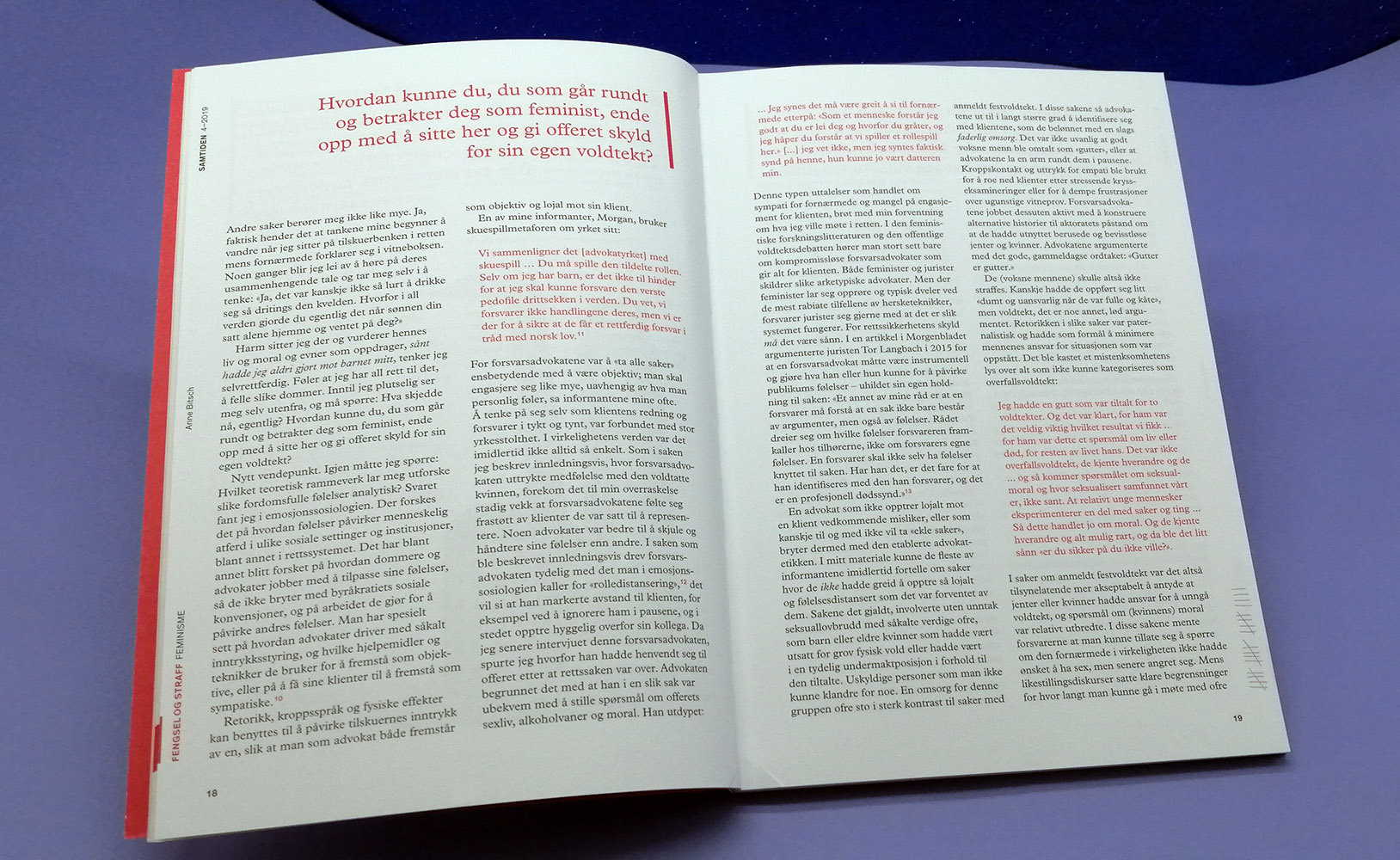The cover of the Samtiden shows a heavy steel door and the words ‘Does prison work?’ The contributors – jurists, philosophers and social scientists – generally answer that question in the negative. Asked to define which single change to the current system they would prioritize, most favour gentler punishments with emphasis on rehabilitation in a humane setting. Not for sex crimes though.

Justice
Philosopher David C. Vogt has investigated the justice of the sentencing range of prison terms and possible alternatives to prison, notably forms of ‘restorative justice’, for example, facilitated encounters between perpetrator and victim. Vogt sees this as an application of ‘Hegel’s concept of recognition of personal autonomy’ and stresses the current elements of unfairness of the court-based system, with its social and racial biases. He argues that ‘the Hegelian perspective points to a new direction for criminal law [so that] punishments are not designed to hurt and are replaced by alternative sanctions based on communication [and] recognition of equal values of people.’
 Submission
Submission
Andreas Ribe graduated in philosophy while serving a prison sentence for murder (in self-defence) and later completed a doctoral thesis on ‘imprisonment and punishment’. He proposes ‘that all convicts start their sentences in open prisons, and that closed prisons are reserved for those convicted of major and repeated breaches of the prison regulations.’
In a closed institution, ‘the prisoner’s dominant experience is suffering, which is regarded as expiation. Whatever the roles played by the guard and the prisoner, the relationship always entails the prisoner submitting.’ The individual prisoner can only come to terms with herself or himself when the oppressive demands of the ‘security culture’ are seen as secondary to personal development.
Debate
These themes recur in the heated exchange between Anders Løvlie, who castigates the lack of ‘an overarching application of humanistic ideology’ in criminal law, and Ragnar Kristoffersen, who rejects this as simplistic, given the variability of the nature of crimes as well as of prison populations
 Sex crime
Sex crime
Sympathy for the criminal is less evident in the social geographer Anne Bitsch’s analysis of legal handling of sexual violence against women, especially rape. She wants ‘the focus to be on the acts of the perpetrator and not on what the victim might have said or done’.
More articles from Samtiden in Eurozine; Samtiden’s website
This article is part of the 1/2020 Eurozine review. Click here to subscribe to our reviews, and you also can subscribe to our newsletter and get the bi-weekly updates about the latest publications and news on partner journals.
Published 25 January 2020
Original in English
First published by Eurozine
© Eurozine
PDF/PRINTNewsletter
Subscribe to know what’s worth thinking about.
Related Articles

Treasure trove or rubbish dump? In either case, oceans are being spoiled. Concepts from ‘mare liberum’ to ‘common heritage’ don’t safeguard the blue planet’s largest frontier from escalated seabed mining, industrialised fishing and waste disposal, nor global inequality and racialized violence. Could a democratic World Ocean Authority be the answer?

The US Supreme Court has overturned two landmark cases that protected a woman’s rights over her own body for 50 years. How did ‘fetal politics’ — a political movement that has turned embryos and fetuses into ‘unborn children’ endowed with unique and inviolable civil rights – gain such momentum? And what will be the outcome of this new ruling?










